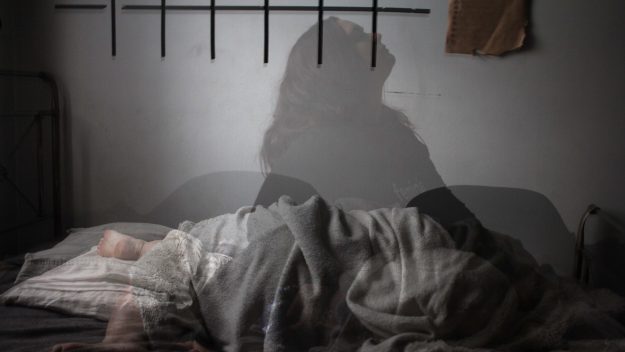More people than ever are talking about mental health in the UK, but is it being taken seriously enough in the workplace?

The UK’s first ever Minister for Suicide prevention was recently appointed to address the decline of mental health and growing rates of suicide.
In the last five years, more students than ever have sought help for mental illnesses. Two billion pounds will be allocated for mental health funding, as part of several initiatives to address the problem.
The Money and Mental Health Policy suggests part-time sick leave and access to insurance to protect people with pre-existing mental health conditions.
In this climate of increased awareness for a long-neglected problem, I set out to ask residents of Cardiff whether they thought that people suffering from mental illness should get the same amount of sick pay and leave as people suffering from physical illness at the workplace.
Lucy, 21, student, Cardiff

I’m a carer for someone with mental health issues, and I know how real they are. The place where I work part-time makes sure that sick pay is equal for physically and mentally ill people. I’ve also seen a lot of people abuse the idea of mental illness – pretending to be depressed, in order to take leave – and so I say that mental illness must be verified with a doctor and confirmed before the people can talk about it and discuss equal leave and work treatment.
Tuakhya, 24, student, Saudi Arabia

I don’t know, to be honest. I believe that physical and mental illness should be treated differently in the workplace. Physical illness could be covered by health insurance and bed rest, because they’re usually only for a fixed period, but for mental illness, maybe supervisors should talk with them and work out a schedule so that they can work around their bad days, because they may still be capable of work.
Junior, 26, full-time fundraiser, Cardiff

A physical injury can heal and may never come back, but a mental illness could always recur. People with poor mental health absolutely cannot predict when the next bad day will come, so I say that people suffering from mental illness should get more sick leave and a lot of provisions and treatment, more than for a physical injury, whenever they feel bad and until they’re ready to go back.
John, 75, retired, Cardiff

I absolutely think that people with poor mental health deserve the same benefits and sick pay as people with physical illness. I’ve been in workplaces where people have slowly grown mentally ill and been treated badly, shoved at, and forced or encouraged to leave “for their own good”. I think employers should look at the history of the person, and give out equal sick leave if their illness is genuine, whatever it is.
Spencer, 33, IT Professional, Hereford

We’re at a point where it’s possible that mental illness may be more common and long-lasting than physical illness in the workplace. I believe that both illnesses should get the same amount of sick leave and pay, but therapy and treatment should be offered to people with poor mental health in addition, until they’re good and ready to go back to work. My former workplace has finally implemented that, for which I’m very glad.
